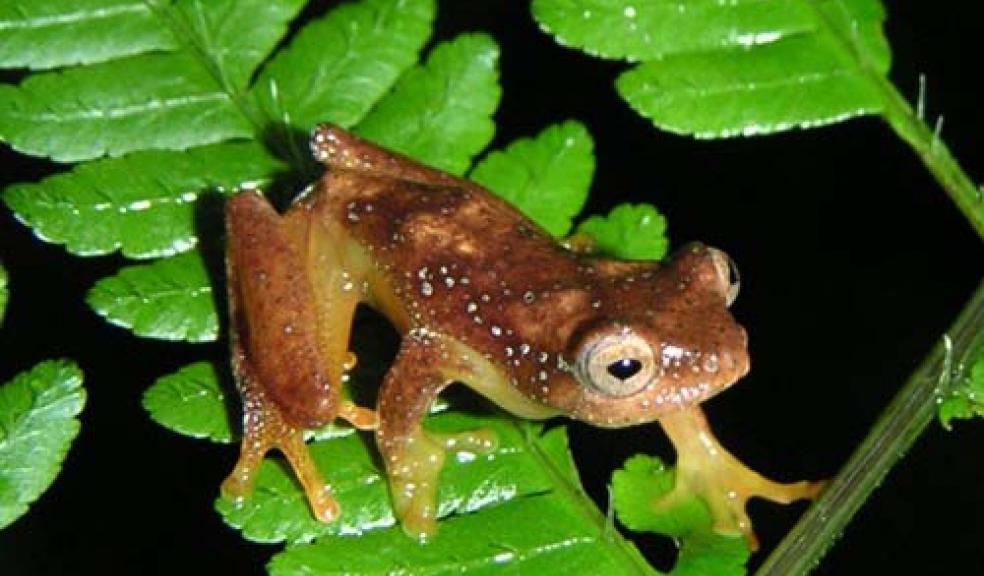
Rare frog found after three year search
A Devon conservation charity has found a rare African frog after a painstaking search lasting three years.
The Whitley Wildlife Conservation Trust, which runs Paignton Zoo, Living Coasts in Torquay and Newquay Zoo in Cornwall, carries out fieldwork with rare amphibians in the mountains of Eastern Tanzania.
The work is funded by zoo visitors and supporters and carried out with the charity’s partners, Manchester Metropolitan University and Museo delle Scienze, Trento, Italy.
The two Kihanga reed frogs – one male and one female – were found and photographed by Elena Tonelli, a PhD student at Manchester Metropolitan University who is part-funded by the Trust. Her pictures were verified by experts.
The Kihanga reed frog Hyperolius kihangensis is officially Endangered. The two were recorded in the northern part of the Uzungwa Scarp Forest Reserve, some distance from their only previously known site - a small swamp in the centre of the reserve. Elena has since also found the species at this original site. The area is officially a Forest Reserve managed by the Tanzania Forestry Service, but it is in dire need of active protection. Before this the species hadn't been seen at all for at least 10 years.
The charity has only recently appointed Elena to lead the work. Whitley Wildlife Conservation Trust Overseas Conservation Officer Andy Bowkett: “We hope her PhD research will help us understand why this part of the Udzungwa Mountains has such an unusual amphibian community and what can be done to conserve it. She has got off to a great start!”
Elena, who is working with Dr Stuart Marsden at MMU, added: “We will be working on the scarp for the next three years, so there may be other discoveries to be made. Our aim is to find out more about the species there so we can better protect them.”
The find is significant because this is one of three hyper-endemic – extremely localised - species the Trust has been looking for since 2011 and only the second they have found. Andy: “It’s really good news, but we still haven't found Poynton's forest toad, which we've always been more worried about. We have surveyed its historical site many times, most recently in February.”
The find is a boost for the Trust’s work in Tanzania. “We're committed to funding Elena's PhD fieldwork for the next two rainy seasons – that’s 2014/15 and 2015/16. There's a lot more to do, including finding Poynton's forest toad.”
The question is, why does this one little frog matter, both globally and to the people of South West England? Mike Bungard, Curator of Lower Vertebrates and Invertebrates at Paignton Zoo Environmental Park: “This frog is one part of a huge global biodiversity crisis that will hit us all. Amphibians are a good indicator of environmental change.
“However, in this case things are even more complicated. We strongly suspect that changes in the environment - such as climate change and disease - are influencing each other and rare species are slowly dying out because of this lethal combination. We need to carefully consider where our resources will be most effective and help save species.”













